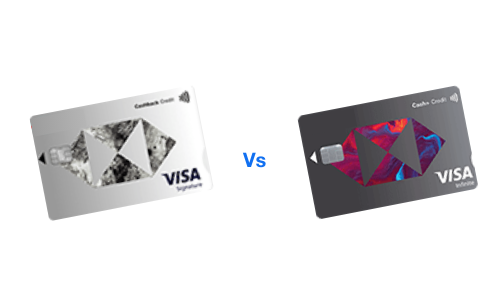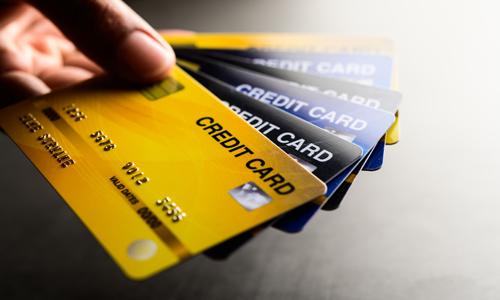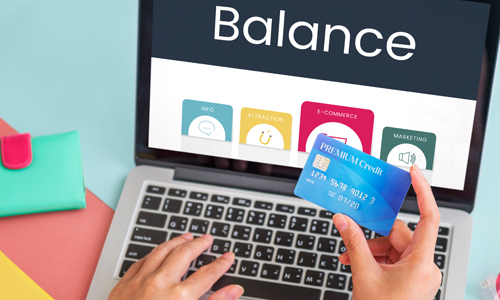Debt Consolidation Loan or Balance Transfer Credit Card – Which Is Better?

If you want to eliminate your high-interest debts quickly, you ought to consolidate them. This helps you make your debts more manageable in different ways. There are two forms of debt consolidation that you can choose from – debt consolidation loans or balance transfer credit cards.
You might not have heard about these terms before, but these are the true methods of reducing your debts without impacting your other financial needs. Most people who are not familiar with financial solutions available in the market take personal loans to pay off their debts and end up paying even higher interest rates.
To save yourself from such a loss, you must first understand how debt consolidation works and how you can pay off your debts more efficiently. With debt consolidation, you sum up all your debts and transfer them to your chosen financial solution for easy repayments. Keep reading to learn about the two most popular debt consolidation and repayment solutions in detail, followed by the pointers to understand how one is better than the other.
What is Debt Consolidation Loan?
A debt consolidation loan is a type of personal loan that borrowers use to consolidate and pay off their debts. A debt consolidation loan comes with fixed interest rates that help borrowers repay the same without facing any financial difficulty.
Personal loans for debt consolidation offer a fixed repayment timeline to help borrowers manage their finances while paying off their debts. The best part about these personal loans is that they come with no pre-set criteria for the borrowers when it comes to spending the loan amount. They can spend the loan amount on repaying any kind of debt, including home loans, utility bills, mortgages and more.
Pros of Debt Consolidation Loan
- A fixed interest rate helps borrowers manage their finances in a better way.
- A fixed repayment term to help pay off the loan on time.
- A fixed monthly payment to help create a concrete debt repayment plan.
- The borrowers get a longer time to pay off debts easily.
- Debt consolidation loans simplify finances for the borrowers as they need to make a single payment in a month.
- The borrowers with good credit scores get lower interest rates.
- Both secured and unsecured loans are available.
Cons of Debt Consolidation Loan
- Some lenders charge an origination fee on personal loans for debt consolidation.
- Lower loan amount with unsecured debt consolidation loans.
- Lowered credit Score with missed payments.
What is a Balance Transfer Credit Card?
Balance transfer credit cards are the credit cards that allow the cardmembers to consolidate and transfer their other bank credit card outstanding balance and repay the same in easy monthly EMIs. Most balance transfer credit cards offer zero per cent interest rates on balance transferred from the other credit cards.
The best part about these credit cards is that they enable cardmembers to choose the repayment timeline based on their financial preferences. However, once they set up the timeline, they need to make payments on time or they might end up lowering their credit score.
Pros of Balance Transfer Credit Cards
- Most banks and other lenders in the UAE offer credit cards with zero or lower interest rates on balance transfers.
- Some of these credit cards are free for a lifetime and have exciting reward point offers.
- After the debt repayment, these cards open another credit line to help cardmembers enhance their credit score.
- With zero interest rates, even a single penny paid reduces the principal amount.
Cons of Balance Transfer Credit Cards
- Not all the balance transfer offers on credit cards last forever.
- If payments are missed, interest rates will be higher that can lead to a higher repayment amount.
- If the borrowers keep making purchases, they may end up increasing their debt.
Debt Consolidation Loans vs. Balance Transfer Credit Cards
Here are the major differences between debt consolidation loans and balance transfer credit cards.
- Loan Amount - The borrowers can settle larger debts while taking debt consolidation loans as they get years to repay the same. On the other hand, with balance transfer credit cards, they can pay off smaller debts as they get only a few months to repay the outstanding amount.
- Repayment Terms - In debt consolidation, the borrowers can make monthly payments based on their financial preferences. On the flip side, with balance transfer credit cards, they need to convert the total outstanding into monthly instalments and make full payment by the end of the term to avoid additional interest.
- Fees and Other Charges - With debt consolidation loans, the borrowers need to pay up to an 8 per cent origination fee in addition to other charges applicable on loans. However, with balance transfer credit cards, there are no additional charges other than a 3 to 5 per cent balance transfer fee.
- Interest Rates - The interest rates on debt consolidation loans are usually higher in comparison to the ones for balance transfer credit cards.
- Credit Score - The lenders in the UAE offer debt consolidation loans for borrowers with both good and bad credit scores. However, for balance transfer credit cards, the borrowers need to have a good credit score of above 750.
Major Factors to Consider When Consolidating Debts
Here are a few major factors that you need to keep in mind when planning to consolidate your debts.
- Repayment Schedule - A repayment schedule is something you must consider before applying for a debt consolidation loan or a balance transfer credit card. Make sure you create a repayment strategy to make your payments on time and avoid paying additional interest rates while saving your credit score from being impacted.
- Fees and Charges - Most credit cards that offer balance transfer services charge a one-time fee for the cardholders. The same is the case with personal loans. The lenders charge a processing fee, origination fee and more while providing the loan amount. Make sure you go through the fees structure of your chosen repayment source before applying for the same.
- Interest Rates - Debt consolidation loans come with stable interest rates with fixed repayment terms. This is the reason why debt consolidation loans can be the best option for settling down your debts. On the other hand, with balance transfer credit cards, the borrowers can convert their outstanding balance into easy monthly EMIs, but they need to pay the same on time. If not, they may end up paying even more for a longer duration.
- Credit Score Impacts - The whole point of consolidating and transferring your debts to another source of payment is to maintain your credit score and manage your finances. However, this process, if not done right, can negatively impact your credit score. Credit scores mostly get impacted by revolving your debts a lot. Make sure you do not regularly transfer your debts from one card to another as it can lead you to a lower credit score.
- Types of Debts - The types of debts you need to consolidate can help you in choosing the best repayment option. For example, if you need to repay multiple credit cards bills, you can consolidate and transfer them to your chosen credit card that offers a balance transfer facility. On the other hand, if you have different types of debts such as home loans, car loans, credit card bills and more, you can simply consolidate them and repay them with the help of a debt consolidation loan.
Which One to Prefer - Debt Consolidation Loans or Balance Transfer Credit Cards?
You can easily pay off your high-interest debts by either taking a debt consolidation loan or a balance transfer credit card. However, both financial options work for you in different scenarios.
Debt Consolidation Loans are best for-
- People who prefer fixed interest rates and want to make fixed monthly payments.
- People who need a longer period of time to repay their debts.
- People who do not prefer using credit cards due to high usage.
Balance Transfer Credit Cards are best for-
- People who have a small amount of debt and just want to consolidate the same into one.
- People who have a firm hand over spending funds and can control their credit card usage after the balance transfer so that they do not end up with even higher debt.
You need to ask yourself a few questions to make an informed financial decision. Analyse your debts and figure out if they are just small debts or more than that. To understand the requirement better, you can create a report that shows what comes in and what goes out every month. This will help you come up with an amount that you can pay every month to get rid of your debts. Keeping in mind this amount can help choose the right repayment financial option.
| You may also like this - Apply to Best Credit Card in UAE |
Conclusion
Now that you know the difference between a debt consolidation loan and a balance transfer credit card, you can create an effective strategy for paying off your debts without any hassle. In case you have any doubts or want to explore your options, you can always give us a call on our helpline number. Our financial experts are available round the clock to answer your queries.
More From Credit Cards
- Recent Articles
- Popular Articles




















